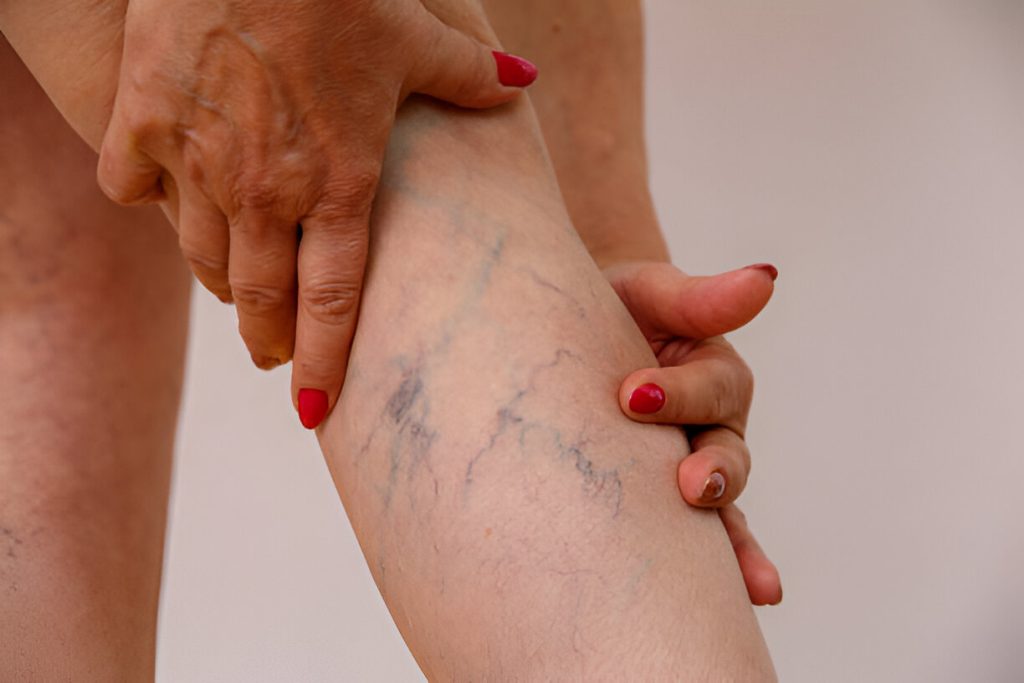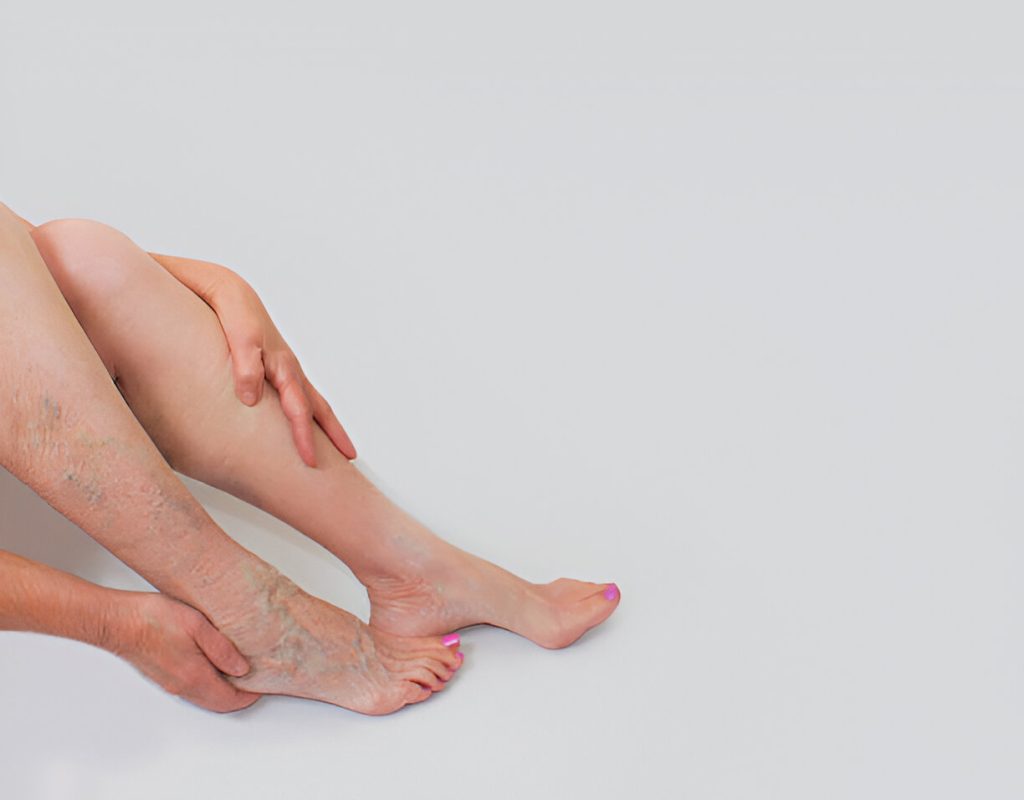Top 10 varicose veins self-care tips & when to see a doctor?
Varicose veins are more than just a cosmetic issue—they can cause discomfort, aching, swelling, and even lead to complications if not managed properly. Poor vein circulation is at the root of the problem, but the good news is that varicose veins self-care strategies can help ease symptoms and prevent progression.
In this blog, we’ll explore the top 10 varicose veins self-care tips, when to seek medical treatment, and address frequently asked questions about home remedies and lifestyle changes.

Top 10 varicose veins self-care tips to alleviate symptoms
1. Wear compression stockings
Using compression stockings for varicose veins is one of the most effective non-surgical options. These apply gradual pressure to support blood flow and reduce swelling. Choose a suitable compression level as advised by your healthcare provider for optimal results.
2. Stay Active – Keep Moving
Regular varicose veins self-care exercises like walking, swimming, cycling, or yoga promote healthy circulation and help prevent blood from pooling in the veins. Aim for at least 30 minutes of low-impact activity daily to strengthen leg muscles and improve vein health.
3. Elevate your legs
Elevating your legs above heart level for 15–20 minutes a few times a day reduces pressure in the leg veins and promotes better blood return to the heart. It’s a simple, effective varicose veins self-care home remedy that helps with swelling and fatigue.
4. Maintain a healthy weight
Excess weight places added stress on your veins. Maintaining a healthy weight through a balanced diet and consistent physical activity reduces this burden and supports long-term vascular health.
5. Avoid prolonged sitting or standing
Sitting or standing for extended periods can impair circulation. If your routine involves either, take short breaks every 30–60 minutes to move around or flex your legs to encourage blood flow. Shift your weight between legs if standing for long.
6. Use OTC pain relievers (temporarily)
Over-the-counter medications like Ibuprofen or Acetaminophen may relieve mild pain, swelling, or inflammation. However, these should be used sparingly and not as a long-term solution. Consult your doctor before regular use.
7. Choose comfortable clothing & footwear
Tight clothing around the waist or legs can hinder circulation. Opt for loose-fitting garments. When it comes to shoes, low-heeled options help engage calf muscles, which support healthy blood flow better than high heels.
8. Massage your legs gently
Light leg massages using upward strokes can improve circulation and relieve discomfort. Use a mild lotion or oil, but avoid direct pressure on bulging veins. Always massage with care and stop if pain increases.
9. Stay hydrated
Proper hydration supports blood volume and flow. Drink plenty of water and limit caffeine and alcohol, which can dehydrate your body and worsen symptoms. Hydration also helps prevent leg cramps associated with poor circulation.
10. Avoid excessive heat exposure
Hot baths, saunas, and long sun exposure can dilate veins, leading to more blood pooling. Use cool or lukewarm showers instead and wear breathable clothing in warm weather. Cold compresses can also reduce swelling and soothe tired legs.
When to see a doctor for varicose veins treatment
While self-care for varicose veins can alleviate mild symptoms, medical attention is necessary if you experience:
✔ Severe pain or swelling in the legs
✔ Skin discoloration or ulcers around the veins
✔ Hardening or redness over a vein (a sign of a blood clot)
✔ Persistent leg cramps or a heavy feeling in the legs
✔ Bleeding from varicose veins
✔ Dry, itchy spots near your feet or ankles
If your symptoms become more severe or impact your daily activities, consider consulting a specialist for varicose vein treatment options, such as sclerotherapy, endovenous laser therapy, or microphlebectomy.

Visit Karishma Vein Clinic for varicose veins treatment in Pune
If you’re experiencing discomfort from varicose veins, don’t let it affect your daily life.
At Karishma Vein Clinic in Pune, we specialize in advanced varicose veins treatments tailored to your condition. With over 1,000 successful cases treated, our expert team ensures safe and effective solutions, whether through laser therapy, sclerotherapy, or microphlebectomy.
Say goodbye to painful, swollen veins and regain confidence in your legs.
FAQs About Varicose Veins Self-Care & Remedies -
The fastest and most effective way to eliminate varicose veins is through medical treatments such as laser ablation, sclerotherapy, or minimally invasive surgery. While self-care can manage symptoms, these procedures provide quicker and long-lasting results.
No, varicose veins typically do not self-heal. They may become less noticeable with lifestyle changes, but they usually require professional treatment to fully eliminate. However, varicose veins self-care home remedies can help manage symptoms and prevent worsening.
Foods rich in antioxidants and fiber support vein health, including:
- Berries (rich in flavonoids)
- Leafy greens
- Whole grains
- Garlic
- Citrus fruits
Also, reduce salty and processed foods that contribute to fluid retention and swelling.
No, hot water can make varicose veins worse by dilating blood vessels and increasing blood pooling. Use cool or lukewarm water instead. Avoid hot tubs and long, hot showers.
Turmeric contains curcumin, which has anti-inflammatory properties. You can:
- Add turmeric to food or drink turmeric tea
- Apply a turmeric paste (with olive oil) externally as a natural anti-inflammatory (test for skin sensitivity first)
While helpful, turmeric should complement—not replace—medical advice or treatment.
